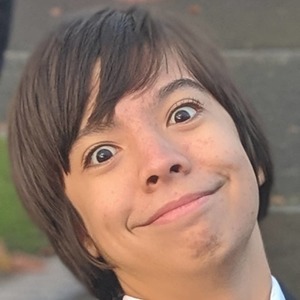30789981
EdExcel GCSE - History - Superpower Relations and the Cold War - Gorbachev's New Thinking and the End of Soviet Control and the USSR
Descrição
Sem etiquetas
FlashCards por Malachy Moran-Tun, atualizado more than 1 year ago
Mais
Menos

|
Criado por Malachy Moran-Tun
aproximadamente 3 anos atrás
|
|
Resumo de Recurso
| Questão | Responda |
| Why did Gorbachev Introduce his "New Thinking"? | > Came to power in 1985 > Inherited a poor economy due to the Soviet War in Afghanistan, lasting 10 years > Wanted to improve living standards for those in the USSR > Pushed for change in USSR's spending habits and openness in society > Argued it was necessary for some private ownership of property and business |
| What were the Policies of Glasnost Perestroika? | > Openness / Free Speech > Economic Restructuring |
| How did Glasnost and Perestroika affect the USSR's Policies? | > Powers of the KGB (secret police) limited > Criticism of government was permitted (to stop the constant falsification of government figures) > Change in foreign policy: - Reduced defence spending - Increased avoidance of nuclear war - No interference to politics of countries outside of the USSR - No arms race: the USSR was bankrupt - Soviet troops withdrawn from Afghanistan - Reduced Soviet aid worldwide (COMECON) - Détente to be adopted |
| What was the INF Treaty? | > Intermediate-Range Nuclear Forces Treaty, 1987 > Signed by USSR and USA > Banned all nuclear and conventional ballistic missiles that travelled between 500 - 5,000 miles |
| Why did Satellite States begin seeking Freedom from Soviet Control? | > Gorbachev announced the end of the Brezhnev Doctrine > Satellite states were able to choose how they were to be governed freely (unlike Hungary in 1956 and Czechoslovakia in 1968) > Glasnost and Perestroika themselves encouraged satellite states to do the same |
| What are (some) Examples of Satellite States Ending Soviet Control? | > June 1989 - Poland: Solidarity is legalised and wins a landslide victory > May 1989 - Hungary: Government takes down the border fence with non-Communist Austria, electrons are held in October > Nov. 1989 - Czechoslovakia: "Velvet Revolution" overthrows the government, Vaclav Havel is elected president > Dec. 1989 - Romania: Demonstrations against the Communist government leads to the leader, Ceausescu, being overthrown and executed > Dec. 1989 - Bulgaria: Communist leader Peter Mladenov resigns live on national TV, free electrons held next year > Dec. 1990 - Yugoslavia: Slovenians vote to become independent; Yugoslavia breaks up into Croatia, Serbia, and Montenegro |
| How did the Berlin Wall Fall? | > Sep. 1989: East Germans travel through Hungary to Austria, allowing them to enter West Germany > Oct. 1989: Gorbachev refuses to help the East German government put down demonstrations against them > 9th November 1989: East German government announces the opening of the border crossing to West Berlin - Thousands of East Berliners force their way through |
| What is the Significance of the Fall of the Berlin Wall? | > Germany was reunited with friends and relatives split up for 28 years > Politically symbolic event > Destruction marked the end of Soviet control over satellite states; for 28 years, it was a symbol of the division of Europe / East-West divide |
| How did the Warsaw Pact End? | > Warsaw Pact impossible to survive under the anti-Communist reforms across Eastern Europe > Military co-operation ended early 1990, effectively ending the Pact > Formally abolished in July 1991 |
| How was the Soviet Union Dissolved? | > Perestroika had no immediate effect: still food shortages and rising prices > Some Russians wanted the complete collapse of Communist system - not just reforms > Feb 1990: 250,000 people demonstrated against the Communists in Moscow > August 1991 - hard-line Communists lead a coup against Gorbachev, imprisoning him in his dacha (country home) > Boris Yeltsin wanted to destroy Soviet Communism, but insisted that Gorbachev's reforms were necessary for Russia to be saved > Yeltsin formally ended the USSR in December 1991, after gaining power from the people supporting him > Gorbachev resigned as Soviet president on Christmas Day, 1991, as the ☭ was lowered for the last time |
Quer criar seus próprios Flashcards gratuitos com GoConqr? Saiba mais.
